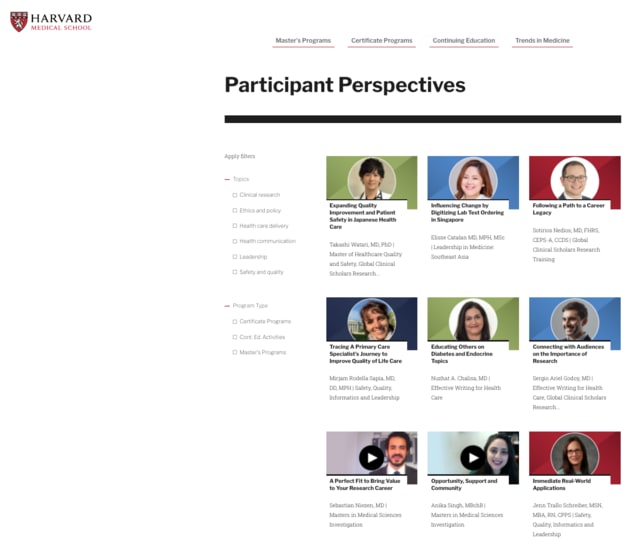みなさま こんにちわ。
いやはや、激動で毎日何をしているかわからないくらいにあっというまに時間が流れていきます。
現在はセンターの様々なメインのプロジェクトを少なくとも0−1ではなく、0-3までを最短最速で確立できるように夜な夜な取り組んでいます。
さて、今週は嬉しいことが。
なんとHarvard Medical Schoolのホームページに自分のインタビューが乗っていると師匠に教えて頂きました。
実は、卒業生を代表して不消にも自分がプログラムのスピーチに選ばれました。
まさかとは思ったのですが、あの時のお話が、かなり高尚な内容にしていただいて掲載していただいているようです。
Harvard Medical Schoolの良い点は、本当にクラスメートのモチベーションが高くて、自分だけが勉強したらそれでいいとかそういうレベルではなくて、
”どうにか自分の国を良くしたい”とか、”リーダーとしてこの事業を始めたい”などなどそういう人ばかりが集まっています。
結局同期を観察していて、入学時の彼らのPersonal statementの通りだなぁと感じた事があります。ブレない・全然、ブレない。
僕も自分のPSをインタビュアーに渡しましたので、結構それから文章にしてもらっているようです。
もし興味があれば、一人の日本人医師が どのようなことを考えて、どのようなことを目指しているかホンネの部分をお読みいただければと思います
(google 翻訳?などでも意図は伝わるかと思います)

Expanding Quality Improvement and Patient Safety in Japanese Health Care
Takashi Watari, MD, PhD | Master of Healthcare Quality and Safety, Global Clinical Scholars Research Training
Participant Perspective July 12, 2021
Takashi Watari
Quality improvement and patient safety practices are essential in all health care settings, but not all countries have adopted these principles at the same pace. For instance, in Japan these concepts have not yet received as much attention as they have in the United States, according to Takashi Watari, MD, PhD, who serves as an associate professor in the General Medicine Center at Shimane University Hospital in Shimane, Japan.
He explains that this means that there is always the risk for errors to occur in the health care process in his country; yet, no formal system currently exists in Japan to capture the data and use the lessons it reveals to make strategic improvements.
But Watari is determined to change this fact. This desire led him to enroll full-time in Harvard’s Master of Healthcare Quality and Safety (MHQS) program, with the goal of building up his expertise in these areas and also finding new ways to spread the knowledge he gains on a broader level.
Building Knowledge in Key Quality and Safety Steps
“As there are no similar [quality improvement training] programs in Japan, I have not received formal education on medical safety and quality medical care; my knowledge in that field is mainly derived from books and dissertations. However, it is insufficient, and I sense the necessity of practical training for proposing solutions using in-house data, and evaluating evidence-based best practices,” Watari explains, adding that these steps are essential to achieving optimal outcomes.
“The MHQS program comprises renowned faculty who are proficient in existing research on this topic; therefore, I hope to benefit from their knowledge and experience and learn to innovate and think critically,” he says.
He also wants to use the education he obtains from the Master of Healthcare Quality and Safety program to create a similar training program in Japan, so he can share the lessons he learns with other clinicians and leaders to ultimately improve the safety and quality of medical care provided there.
Identifying Gaps in Safety Practices
Watari’s interest in quality and safety began more than a decade ago, when he was working in clinical practice as a hospitalist at Shonan Kamakura General Hospital, which he points out has the highest number of emergency transport cases in Japan.
“In the field of emergency care, I have been able to help a large number of patients, but on the other hand, I have come to believe that maintaining good patient safety and improving the quality of medical care is more important than providing good treatment,” he reveals.
This prompted him to begin studying diagnostic errors in 2011. At that time, little research was done in this area. “However, I was fortunate to have good mentors, who were leaders in diagnostic studies,” he says. This started him on a new path, but it is one that is not without obstacles.
Changing the National Quality and Safety Norms
“In Japan, there are few national-level studies on topics that deal with information that is unpleasant and negative for medical professionals,” he says. However, he and his mentors felt strongly about the importance of raising attention to the actual state of diagnostic errors in Japan and addressing the problem by offering strategic medical education that incorporates this focus.
“I believe it is necessary to develop training programs in Japan, like those at Harvard Medical School, to train medical staff members to lead hospitals with evidence-based practices and to teach them to utilize their medical data to drive decisions. This would dramatically improve worldwide research on medical quality improvement and safety,” Watari says.
“I want to work towards achieving this objective by improving the quality of medical care, building a culture of medical safety and creating systematic training courses in Japan,” he stresses.
Looking to the Future of Quality and Safety
Watari also points out that his current work is focused on researching diagnostic errors, with the support of government funds, and he has also secured US–Japan Internet research funds to continue his research at Harvard.
“At HMS, we are now ready to do collaborative research on the capstone project using ideas developed in the MHQS program and data from Japanese medical facilities. Thus, I want to contribute to the MHQS program as a researcher, instead of limiting myself as a student,” he says.
“Additionally, I want to use my subject knowledge to stand as a representative of Japan’s unique cultural background on an international level,” he adds.
Building on Knowledge
Watari also points out that this is not his first educational experience at Harvard. He also participated in Harvard Medical School’s Introduction to Clinical Research Training—which has been reformatted as an online certificate program, Foundations of Clinical Research—and Global Clinical Scholars Research Training programs and has worked with the Japanese media to help share with other health care professionals the benefits of participating in these global opportunities.
As he is learning first-hand, Harvard’s programs have been essential to help him further his own career. This experience will also go a long way toward promoting the importance of implementing strategic quality and safety protocols into Japan’s health care infrastructure, thus ultimately benefitting the nation’s entire population.











